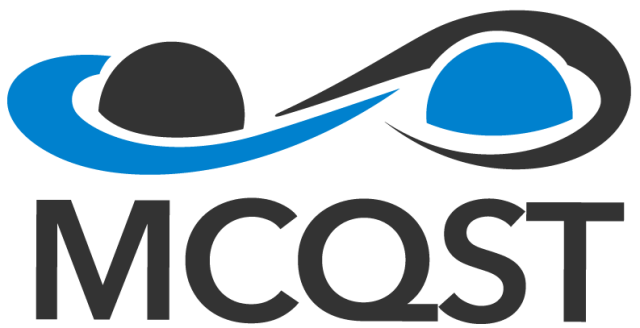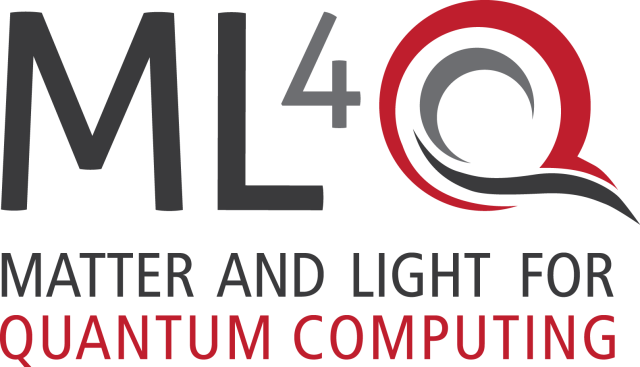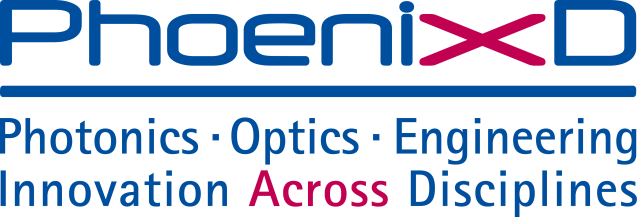Getting Started in the Quantum World
There are many different ways to enter the fascinating quantum world and to explore the matter and energy at the most fundamental level. Quantum phenomena are all around us, acting on every scale. You may just have started your career at your University or have already become an expert on your field.
On this page you'll find a variety of possibilities for Postdocs:

Universität Hamburg | Deutsches Elektronen-Synchrotron (DESY) |
Max Planck Institute for the Structure and Dynamics of Matter | European XFEL
Graduate School
The education and promotion of young researchers is a key aspect and ingredient for the successful operation of the cluster. Substantial parts of the scientific work are performed by researchers at early stages of their careers.
Young Investigator Program
Seven Young Investigator Group Leaders have already started their work at the Cluster of Excellence "CUI: Advanced Imaging of Matter". The positions have been newly created and are aimed at young scientists who are already independently carrying out challenging research projects of their own and who are attracting or have already attracted funding at the level of Emmy Noether groups or ERC Starting Grants.

Julius-Maximilians-Universität Würzburg (JMU) | Technische Universität Dresden (TUD)
Cluster Fall School - ct.qmat
During a biennial fall school, specialist lectures on the topic of complexity and topology in quantum materials are given by internationally renowned researchers. The school is co-organised by the early career researchers of ct.qmat’s Quantum Matter Academy.
Graduate Academy - TU Dresden
The Graduate Academy is the central contact and service point for all early career researchers at TU Dresden. It offers a qualification program specially designed for early career researchers, individual advice before, during and after the doctorate, funding programs and regular events for interdisciplinary networking
Graduate School of Science & Technology (GSST) - JMU Würzburg
The Graduate School of Science & Technology is an established and structured doctoral program of six natural science faculties at JMU. Doctoral students benefit from a mentoring program, an individual research plan, early contact with the international research community and a strong focus on the publication of research results.
Postdoc Center HZDR-TUD - HZDR and TU Dresden
To provide the best possible support for postdocs in their career development in science, business and science management, TU Dresden established the Postdoc Center together with Helmholtz-Zentrum Dresden Rossendorf. Tailor-made offers are provided for post-doctoral researchers in order to create optimal conditions for early career scientists.
Hallwachs-Röntgen Postdoc Program - ct.qmat
Postdocs in the Hallwachs-Röntgen Postdoc Program spend part of their research time at each of the two research locations of ct.qmat - Julius-Maximilians-Universität Würzburg and Technische Universität Dresden with their external research institutes. In doing so, they establish a link between the two of the most agile research environments on topological condensed matter physics in the world.

Universität Stuttgart | Universität Ulm | Max Planck Institute for Solid State Research
Early Career Grant
This early stage postdoctoral grant promotes researchers to gain scientific independence and set-up their own research group. Interdisciplinary projects and collaboration across two different IQST locations are among the most important criteria for a successful early career grant application.

LMU Munich | TU Munich | MPI of Quantum Optics | Walther-Meissner-Institute | Deutsches Museum
Distinguished Postdoc Fellowship
As an incentive for proactively hiring excellent female scientists, MCQST offers fellowships funding excellent female postdoctoral researchers for one year, under the condition that the hosting MCQST group commits to funding of another year through other means. MCQST provides funding for these positions every year with a deadline in February.
START Fellowship
To support young talents on their transition from postdocs to independent researchers, MCQST is offering Junior Researcher START Fellowships. With a total budget of 300.000 € for a funding period of two years, the fellows have the opportunity to start their own scientific project in one of the Research Units of MCQST.

University of Cologne | RWTH Aachen | University of Bonn | Research Center Jülich
ML4Q Training and Career Centre
The ML4Q Research School helps to train the next generation of scientists and engineers in quantum technology. ML4Q PhD students and postdocs profit not only from an excellent scientific environment as well as networking possibilities, but also from vast training and career development offers.
ML4Q Fellowships
Excellent postdoctoral researchers who would like to contribute to the scientific goals of the cluster and foster their academic career can receive a fellowship and space in one of the ML4Q groups in Aachen, Bonn, Cologne, Düsseldorf or Jülich.

Leibnitz Universität Hannover | TU Braunschweig | Laser Zentrum Hannover e.V. | Max Planck Institute for Gravitational Physics (Albert Einstein Institute) | Physikalisch-Technische Bundesanstalt
Postdoc Forum
The PhoenixD Postdoc Forum invites early-career scientists to the exchange of experiences. The PhoenixD Research School offers post-doctoral researchers a solid network to achieve professional excellence while developing their skills. Become a member of the interdisciplinary PhoenixD network and advance your career as a postdoc.

Leibniz Universität Hannover | TU Braunschweig | Physikalisch-Technische Bundesanstalt |
Max Planck Institute for Gravitational Physics (Albert Einstein Institute) | Laser Zentrum Hannover e.V. | University of Bremen, ZARM
QuantumFrontiers International Research School
We offer ECRs specific teaching in quantum and nanoscience and an intensive program of team building, scientific skills and transferable skills. We have more than 10 years of experience in leading successful international graduate schools, such as the International Max Planck Research School (IMPRS) and the Braunschweig International Graduate School of Metrology (B-IGSM).